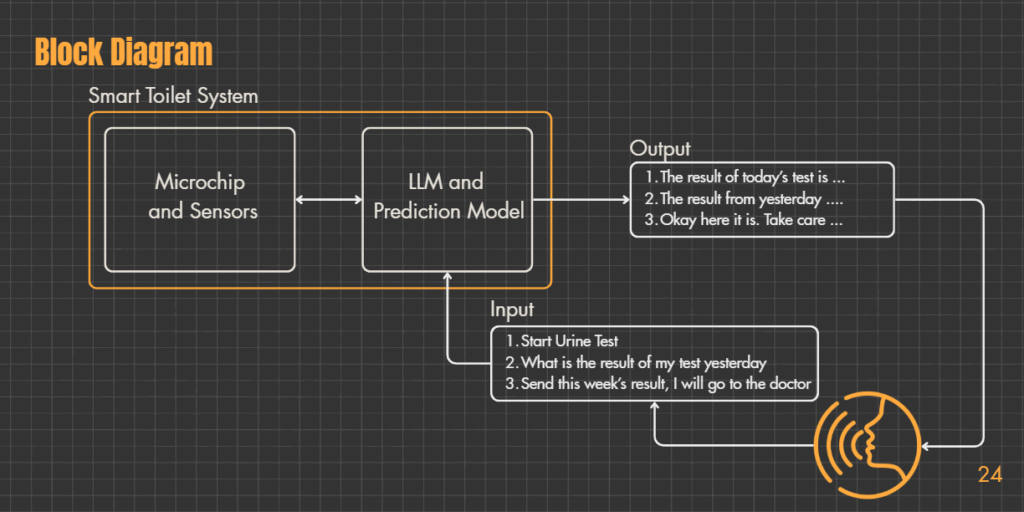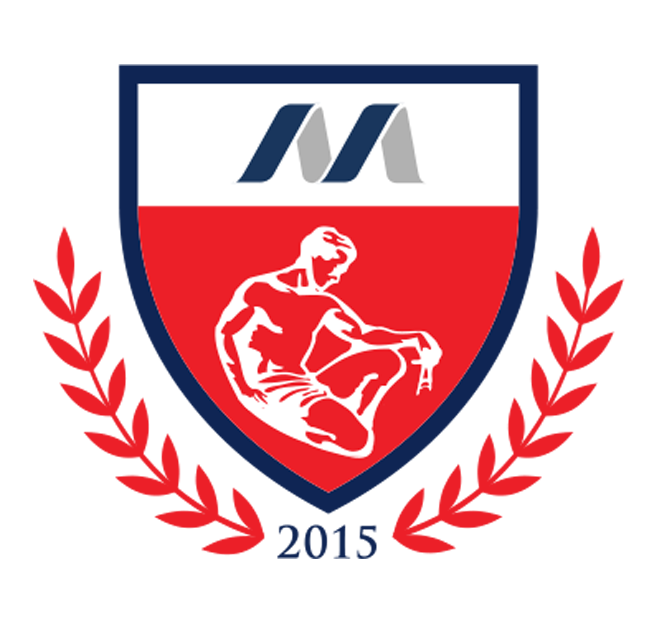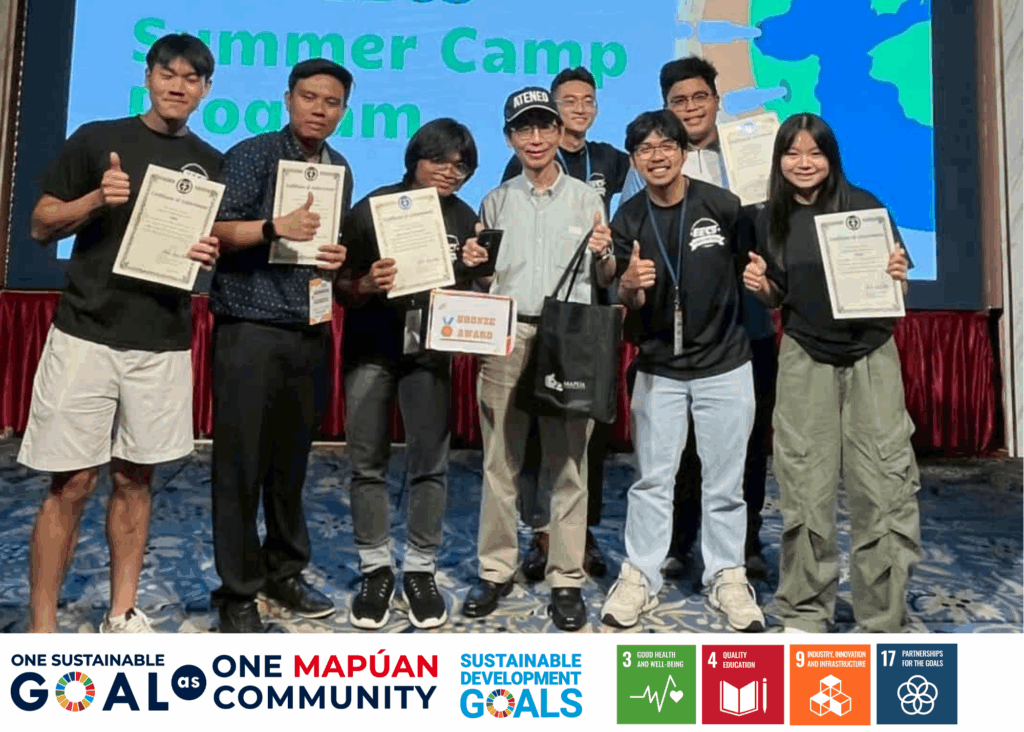Mapúa MCM students Ralph Edcel Fabian, Louis Raphael, and their group at the closing ceremony upon receiving the Bronze Award.
Ralph Edcel Fabian and Louis Raphael Lagare—Computer Engineering students of Mapúa Malayan Colleges Mindanao (Mapúa MCM)—joined a team of international students and won the Bronze Award at the Chung Yuan Christian University Electrical Engineering and Computer Science (CYCU EECS) International Project Design Summer Camp 2025, held from July 31 to August 20, 2025 at CYCU in Chung Li, Taiwan.
Their project, titled “Voice-Responsive System Design for Key Parameters Sensing and Processing Used in Risk Assessment on Kidney Stone Formation,” addressed one of today’s growing health challenges. Kidney stones affect millions worldwide, and while conventional diagnostics can be time-consuming, Point-of-Care Testing (POCT) offers faster, more accessible solutions.

The representatives’ block diagram of the Smart Toilet System project.
Group 5’s innovation combined biomedical sensing, artificial intelligence, and voice interaction to create a system capable of detecting urine parameters and predicting kidney stone risks. The team successfully designed a 10-bit SAR ADC to detect pH levels in urine samples; integrated AI models (Logistic Regression, Qwen 2.5 3B) to assess risk factors such as uric acid, calcium, and conductivity; developed a voice-responsive system allowing patients to interact with test results (e.g., asking, “What is the result of my test yesterday?”); and demonstrated a smart toilet system prototype capable of real-time biomedical data collection and analysis.
Mico Kent Malatag and John Matthew Elamparo of Mapúa University, and Ralph Edcel Fabian and Louis Raphael Lagare of Mapúa MCM were part of Group 5. They were supervised by Dr. Danny Chung with support from teaching assistant Charles Hong.
When asked about what they learned from the experience, Louis Raphaael Lagare shared, “I learned how to apply AI concepts in practical project design, which gave me a clearer view of how intelligent systems can be integrated into real-world solutions.” On the other hand, Ralph Edcel Fabian added, “I developed valuable skills in project management, particularly in leading and collaborating with teammates from different cultural and language backgrounds.”
This initiative directly contributes to several United Nations Sustainable Development Goals (SDGs). It advances SDG 3 – Good Health and Well-Being by developing innovative diagnostic tools for preventive healthcare. It supports SDG 4 – Quality Education by equipping students with interdisciplinary skills in electronics, biomedical engineering, and AI. It aligns with SDG 9 – Industry, Innovation, and Infrastructure by promoting the design of cutting-edge health technologies and potential collaboration with smart toilet manufacturers. Finally, it exemplifies SDG 17 – Partnerships for the Goals by fostering collaboration between students and faculty from Taiwan and the Philippines in creating impactful healthcare solutions.


